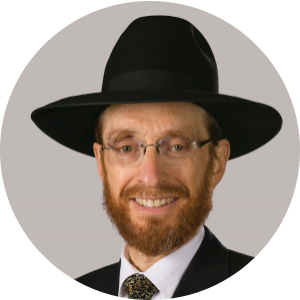Therapy for a Therapist

A lesson we can all put into practice, especially at this time of year

A therapist’s clinical experience does not only consist of the work he has done with his clients. It also includes the experiences of colleagues shared at professional conferences, training workshops, and in clinical supervision. Two case histories that colleagues independently shared with me recently have taught me a lesson that we can all put into practice, especially at this time of year.
One colleague, Dr. A., was treating “Benzy” some time ago for recurrent bouts of depression. When Benzy became depressed, he also became at times anxious, paranoid, and even suicidal. The work with Benzy was quite challenging, to say the least. In spite of the heavy doses of psychotropic medication he was taking, his desperate phone calls between sessions became more and more frequent, and he eventually required hospitalization. Throughout all of this, Dr. A. maintained regular contact with Benzy’s psychiatrist and extended himself in numerous ways in order to relieve Benzy’s suffering as much as was possible.
When Benzy abruptly terminated his therapy without any warning, Dr. A. was disappointed to end working with someone in whom he had invested so much time and effort. After all of the frantic late-night and Erev Shabbos phone calls Dr. A. had taken, at not insignificant self-sacrifice, he felt considerably unappreciated.
Benzy had ended with an unpaid balance. Dr. A. sent him a statement for the outstanding charges before closing the case. The response he received was most unsettling and unexpected. A member of Benzy’s family called Dr. A. and threatened him not to make any further attempts to collect the debt. L’man hashalom, Dr. A. chose to take the loss, but could not help feeling he had been subjected to a blatant act of kefias tovah.
Now consider the case of “Mindy,” who first walked into the office of Dr. B., another colleague, and slumped down as if she carried the weight of the world on her shoulders. While she struggled to present herself as the high-functioning, capable mother and housewife that she had been, she could not hide the unmistakable signs of the creeping depression that was swallowing her up and dragging her down.
With little coaxing from Dr. B., Mindy traced the onset of her difficulties to the late-term miscarriage she had suffered 11 months earlier. Her husband, Label, and their five children had been exceptionally understanding, caring, and supportive. Nevertheless, time was not healing this wound. Recently, after a sudden, unexplainable outburst of tears, Label suggested that she “speak with someone.” And that was what prompted her to call Dr. B. for an appointment.
Mindy made no attempt to minimize the magnitude of her loss. At the same time, however, she acknowledged that almost a year after the miscarriage, she should have been able to pick herself up and move on already. Dr. B. agreed and suggested she and Mindy look together for earlier sources of her intractable depression.
It did not take long for them to uncover various unresolved issues from Mindy’s childhood related to both of her parents having been Holocaust survivors whose emotional scars significantly impacted their parenting skills.
“So it’s ‘all about the childhood’ again?’ Mindy scoffed, half mocking her discovery.
In spite of feeling she was becoming a therapy cliché, Mindy buckled down and worked through and past her childhood traumas, successfully lifting herself out of her former depressive state.
After Mindy and her therapist met for their final session, Dr. B. did not anticipate seeing Mindy again anytime soon. A couple of years later, however, Mindy returned with Label. Their teenaged son, Ari, was acting up at home, and they were at their wit’s end. They were experienced enough to expect some adolescent turmoil in this, their third child. Nevertheless, they did not want to risk ignoring a more serious problem in the making.
Dr. B. suggested they bring Ari in for some family therapy to try to address whatever was troubling him, to which they readily agreed.
When the four of them finally sat down together, it became clear that there was a lot Ari was not saying to his parents that needed to be said. And after a relatively few sessions, the prior close relationship Mindy and Label had enjoyed with Ari was back on track.
At the final family therapy session, all three expressed their appreciation to Dr. B. for facilitating their reconciliation. And Dr. B. assumed she had heard the last from this family. She did not realize, however, how mistaken she was.
Every year, for over 20 years, Dr. B. receives a warm phone message from Mindy before Rosh Hashanah, wishing her and her family a gut yahr and thanking her for her help in the past. It is not uncommon for someone to call a former therapist with kesivah v’chasimah tovah wishes. It is extremely rare, however, for someone to consistently call for so many years after ending therapy as Mindy has done.
And this year, as Dr. B. looks forward to Mindy’s call, I am mindful that Mindy may be accomplishing much more than simply being makir tov. While she will certainly not be grabbing any headlines with her annual Rosh Hashanah phone call, she still may be providing a kind of therapy for her therapist.
Let me explain.
As Yidden, appreciation is built into our DNA. We are, after all, known as Yehudim because Malchus Yehudah, from which we all descend, was named after the fourth son of Leah Imeinu. And when crafting his name, she declared, “Hapam odeh es Hashem” (Bereishis 29:35).
The baalei mussar all talk about how important being makir tov is for elevating the middos of the one expressing appreciation. And Rav Eliyahu Dessler ztz”l, in Michtav MeEliyahu, talks about how not saying “thank you” insults the other person. What we often overlook, however, is how gratitude to a service provider impacts all future recipients of his service.
Most people who end therapy would prefer to forget that they ever needed it. And that is most understandable, considering what dilemmas, conflicts, or crises prompted them to seek help in the first place. Failure to call a former therapist before Rosh Hashanah, therefore, is certainly not an example of kefias tovah. And gratitude from former clients is simply not one of the expected perks of the mental health profession. When someone goes above and beyond, as Mindy has done, however, it can have an almost therapeutic impact on the therapist, fortifying him to cope with the occasional examples of kefias tovah that could threaten to harden a heart that must always remain soft.
As Rosh Hashanah approaches, therefore, we would all do well to emulate Mindy’s thoughtfulness and consider who we could call to wish a gut yahr and thank for a past favor, kindness or service. Your children’s past mechanchim, for example, or your own former rebbi or morah (or even that other rav you called late one night with an urgent sh’eilah when your own rav was unavailable) might appreciate hearing from you. It may make life more pleasant not only for the people we call, but also for the many future recipients of their help. And the additional chesed generated by our phone calls may just be the extra merit we need to earn a kesivah v’chasimah tovah for ourselves and our families.
Dr. Meir Wikler, a frequent contributor to this space, is an author, psychotherapist, and family counselor in full-time private practice, with offices in Brooklyn, New York, and Lakewood, New Jersey. He is also a public speaker whose lectures and shiurim are carried on TorahAnytime.com.
(Originally featured in Mishpacha, Issue 874)
Oops! We could not locate your form.







